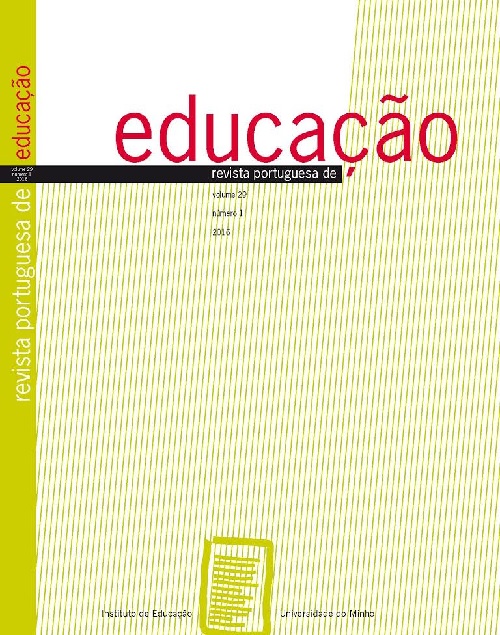Políticas de aprendizagem ao longo da vida em Portugal: Controvérsias na esfera pública em torno da Iniciativa Novas Oportunidades (2005-2013)
DOI:
https://doi.org/10.21814/rpe.7434Abstract
Este artigo procura contribuir para uma compreensão mais aprofundada das políticas desenvolvidas em Portugal, a partir de 2005, em torno da ideia de aprendizagem ao longo da vida, a qual foi considerada pelos diversos Estados-membros da União Europeia como a melhor via para atingir os objetivos da Agenda de Lisboa. Neste contexto, identificou-se um protagonismo mediático assinalável das medidas e resultados associados à Iniciativa Novas Oportunidades, programa que teve como desígnio elevar o patamar de qualificação generalizada dos portugueses para o nível do ensino secundário. Tomando como objeto de estudo os textos publicados em três jornais – Expresso, Públicoe Correio da Manhã– no período entre 2005 e 2013, recorremos à análise do discurso para explorar a forma como a política de educação de adultos no âmbito da Iniciativa Novas Oportunidades foi interpretada na imprensa escrita portuguesa. Encontrámos uma diversidade de perspetivas e interesses em jogo que evidenciaram o forte impacto que a educação de adultos teve nos media, os pontos críticos desta política e os desafios que se colocam no âmbito da aprendizagem ao longo da vida.
PALAVRAS-CHAVE
Aprendizagem ao longo da vida; Iniciativa Novas Oportunidades; Media; Políticas de educação de adultos
ABSTRACT
This article seeks to contribute to a deeper understanding of the policies
pursued in Portugal, since 2005, around the idea of lifelong learning, which
was considered by the various Member States of the European Union as the best way to meet the Lisbon Strategy. Within this framework, a considerable prominence of the measures and results associated with the Iniciativa Novas Oportunidades[New Opportunities Initiative] – a program designed to raise the Portuguese population’s level of qualifications to the secondary-school level – was identified in the media. Taking as object of study the texts published in three national newspapers – Expresso, Públicoand Correio da Manhã– in the period between 2005 and 2013, and using discourse analysis, we analysed how the policy on adult education within the Iniciativa Novas Oportunidades was interpreted in the Portuguese newspapers. We have found a diversity of perspectives and interests at stake, showing the strong impact that the adult education had in the media, the critical points of this policy and challenges to be faced within lifelong learning.
KEYWORDS
Lifelong learning; Iniciativa Novas Oportunidades/New Opportunities Initiative; Media; Adult education policies
Downloads
Downloads
Published
How to Cite
Issue
Section
License
1. The authors preserve their authorship and grant the Portuguese Journal of Education the right to the first publication. The work is licensed under Creative Commons Attribution License that allows sharing the work with the acknowledgment of initial authorship and publication in this Journal.
2. The authors have the right to take additional contracts separately, for non-exclusive distribution of the published version of their work (e.g. to deposit in an institutional repository or as a book chapter), acknowledging the initial authorship and publication in this Journal.
3. The authors have the permission and are stimulated to post their work online (e.g. in an institutional repository or on their personal website). They can do this at any phase of the editorial process, as it may generate productive changes, as well as increase impact and article citation (see The Open Citation Project).
The work is licensed under Attribution-ShareAlike 4.0 International (CC BY-SA 4.0)




















